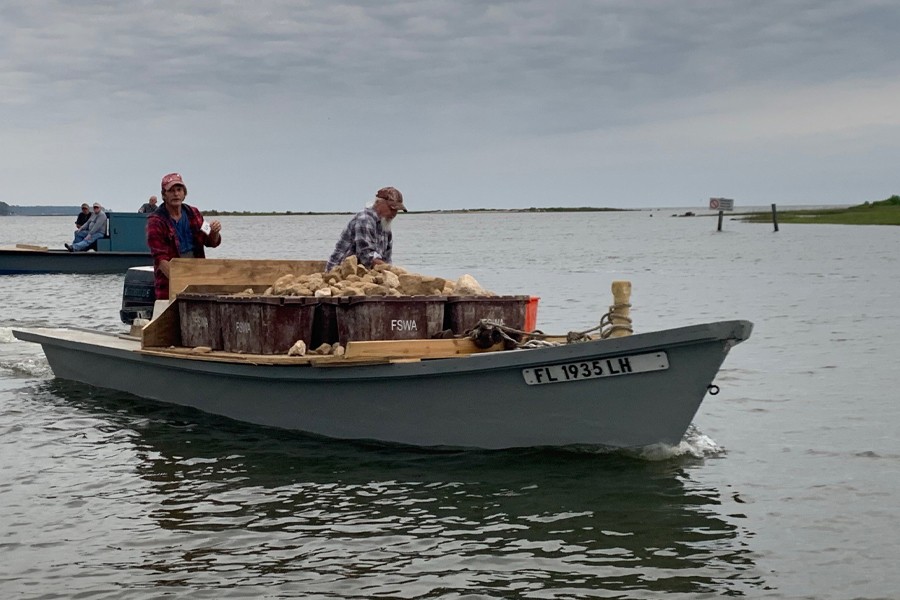By Trimmel Gomes, Florida News Connection
Since the 2020 collapse of the famed Apalachicola Bay oyster fishery, people who made their livelihoods on the bay have been counting on local leaders and scientists to pave a path for a triumphant return.
The Florida Fish and Wildlife Conservation Commission closed the bay for overharvesting, habitat degradation, the BP oil spill and more.
Betty Webb, coordinator and facilitator with the Partnership for a Resilient Apalachicola Bay, said the Apalachicola Bay System Ecosystem-Based Adaptive Restoration and Management Plan marks a milestone in the quest to reclaim the bay, giving hope to multigenerational families who were forced to find new jobs in construction, air conditioning and plumbing.

“In their mindset, that’s an interim opportunity for them to survive. Some have even gone into the service industry, for the tourism,” she said. “But their heart and their passion is wanting to get back on that bay. They like the freedom. They like the self-employment.”
For decades, oysters drove the economy, generating an estimated annual economic output of $134 million before the collapse. The plan has five overarching goals for restoration, including implementing sustainable management practices for oyster resources while considering future conditions such as warmer temperatures attributed to climate change.
Chad Hanson, an officer with The Pew Charitable Trusts, emphasized the significance of the Apalachicola Bay System Initiative in addressing the diverse impacts of climate change, ranging from intensified storm events such as hurricanes to prolonged droughts that disrupt the bay’s water flow.
“That affects where oysters can can optimize their productivity. Thus, the plan calls for looking at the modeling, including what those projections for future conditions will be, to ensure that the management of oyster reefs and the restoration of reefs are being done accordingly,” Hanson explained.
The new management plan was developed over four years of collaboration and is critical to the community. Webb emphasized the urgent need to reopen the bay in January 2026 for affected families, and said even if it has to operate at limited capacity initially, she urges policymakers to ensure fair access for all.
Florida News Connection is a bureau of the Public News Service. The Pew Charitable Trusts – Environmental Group contributes to its fund for reporting on endangered species and wildlife, the environment and public lands/wilderness.
Sign up for The Invading Sea newsletter by visiting here. If you are interested in submitting an opinion piece to The Invading Sea, email Editor Nathan Crabbe at ncrabbe@fau.edu.



